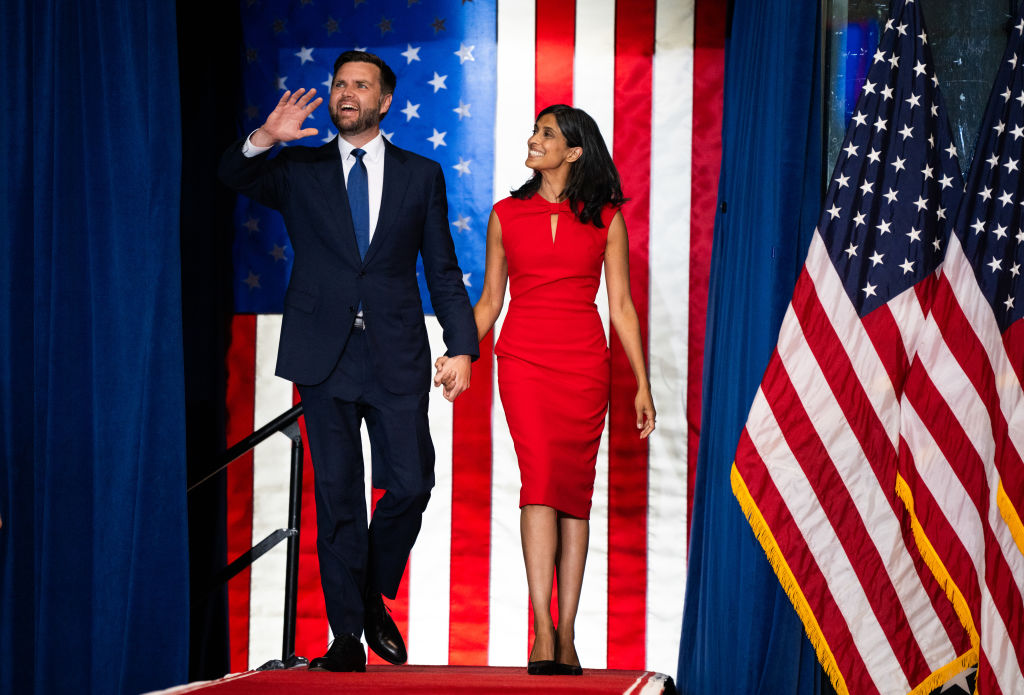When Usha Vance stood beside her husband, JD Vance, Donald Trump’s running mate, at the Republican National Convention in July, it marked a historic moment: for the first time, an Indian American stood a chance of becoming the Vice President’s spouse.
With Vice President Kamala Harris running as the Democratic presidential nominee, the upcoming U.S. election presents a unique scenario — no matter the outcome, a woman of Indian descent will either become the next President or serve as the Second Lady of the United States.
This crucial development underscores the rise of the Indian American community as a political force. Over the past decade, this small but influential group has gained considerable prominence in U.S. politics.
Although Indian Americans make up just 1.5 percent of the U.S. population, they are the largest and most politically active segment among Asian Americans. Their influence extends to the U.S. administration, where they hold more than 4.4 percent of senior government positions.
While the Indian diaspora’s contributions to the tech industry are widely recognized, the community’s political influence is expanding. Among its growing voter base is a lesser-known but increasingly important group: Indian American farmers.
These farmers, who represent a small yet vital segment of the American economy, have become a target for both major political parties. Beyond their economic contributions, they bring values of diversity, inclusivity, and tolerance to the fabric of American society.
One of the most notable Indian American farming communities is located in Yuba City, a small town in Central California. For over a century, Indian American farmers in this region have been growing peaches and prunes, contributing to the agricultural landscape of the U.S.
The roots of this community date back to the early 1900s, when immigrants from Punjab arrived in Yuba City as farm laborers. Over the years, this small group has flourished into a thriving community of successful farmers, business owners, and professionals.
Tejinder Singh Dosanjh, a farmer in Yuba City, said, “Most farmers here grow almonds, walnuts, and peaches, with prunes being a major crop.”
Sarabjeet Singh Thiara, another farmer, said that in the 1900s, Indian immigrants often traveled to Mexico, married local women, and eventually gained U.S. citizenship before moving north to settle in California.
“They’ve made a significant impact since they first arrived,” Thiara said, emphasizing the transformative role Indian American farmers have played in the region’s agricultural development.
Over time, these immigrants have integrated well into American society. Jeffery Flinn, an American farmer in Yuba City, said: “I have two Sikh neighbors. We live together, help each other out, and get along like any neighbors would.”
Though the successive generations ventured out to other professions like becoming doctors, engineers and businessmen, many amongst them are now returning to their family profession of farming.
By – Amrit Pal Singh (DDIndia Correspondent)




















